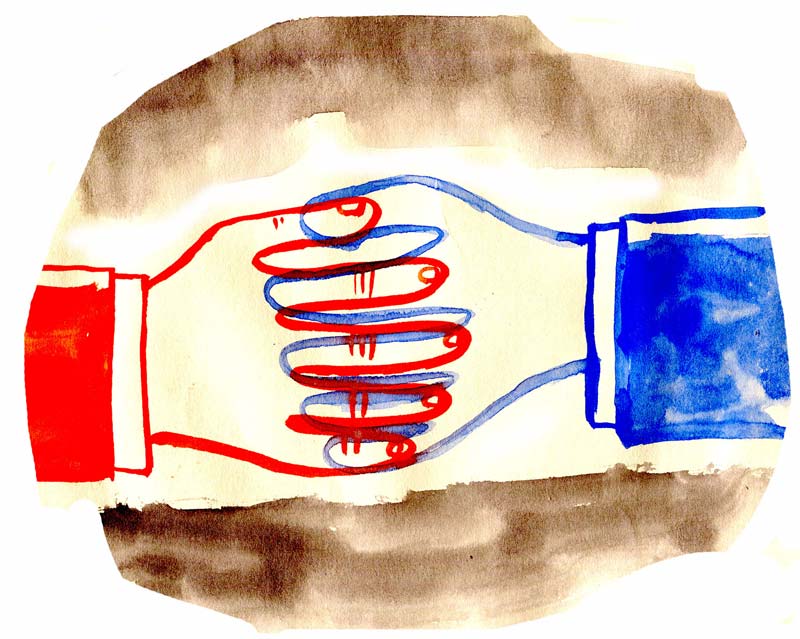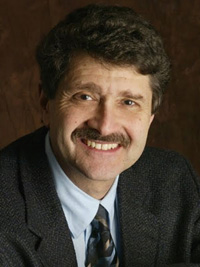
In this polarized Republic, Americans can energetically argue over any idea or observation, but a new poll shows there should be no real controversy over the proud, declarative statement with which I begin every hour of my daily radio show.
For more than a quarter century, it's been my practice to announce "…AND ANOTHER GREAT DAY IN THIS GREATEST NATION ON G OD'S GREEN EARTH." I still receive regularly complaints about this phrase from those who consider it xenophobic, jingoistic and simple-minded, but a Wall Street Journal poll from the end of August shows that most Americans agree with it — by an overwhelming margin of three-to-one.
Among self-described Republicans, an impressive 91% say they agree with the statement: "America is the greatest country in the world." The near-unanimous verdict is perhaps unexpected as we complete the second year of the turbulent Biden presidency, but it shows that most conservatives understand at a deeper level that true American greatness doesn't depend on fleeting partisan victories — or losses.
More surprising, the survey results from the nation's Democrats show that despite the emphasis by many liberal leaders on US guilt and shortcomings, the pride in the Republic remains a bipartisan proposition. A truly amazing — and reassuring — majority of the party of Hillary, Bernie and AOC, say they go along with their GOP neighbors in saying that they live in "the greatest country in the world." 61% say they agree with describing their nation as the greatest, while barely half as many Dems think to dispute the designation. In a sense, this reflects the overwhelming recent insistence by even the most strident Democratic activists that we need to defend American democracy, not replace it with some up-to-date woke alternative.
These poll numbers suggest that as hard as it may be to reach meaningful compromises on policy proposals on inflation, guns, crime, taxes or abortion, more than three out of four Americans of all political persuasions express gratitude and pride over the international standing of their homeland.
With that shared conviction in mind, as we approach a midterm election that promises to produce record voter turnouts in most states, it ought to be easier than is often assumed to reach common ground on our undeniable blessings.
With that hope in mind, I'm attaching a few paragraphs from my book, about the most fateful geographical addition to the United States as a product of providential, almost mystical intervention, not imperialism, arrogance, or conspiratorial plots. For this generation, for every generation, America's freakish good fortune ought to generate "an air of enchantment" (as a Revolutionary War general observed) rather than a sense of guilt and apology.
"G od's Hand On America: Divine Providence in the Modern Era." (Buy the book at a 55% discount! by clicking here or order in KINDLE edition at just $14.99 by clicking here. Sales help fund JWR.)PROVIDENTIAL PURCHASE: Disconnected Developments Double America's Size
Napoleon Bonaparte earned the adulation of his people by conquering territory for France, not by giving it up. But for reasons that still seem mysterious after two hundred years, the great conqueror awoke after a brief sleep one bright spring morning in 1803 with a sudden determination to present the United States with an incomparable gift the new nation neither demanded nor expected.
Defying his closest advisors and ignoring the normal rules of national self-interest, the impetuous thirty-year-old dictator insisted on transferring to the Americans a vast tract of land four times larger than France itself – a tract of land, moreover, that Napoleon had acquired for his country after arduous, top-secret negotiations that had concluded just two and a half years before. The puzzling change of course resulted in an astonished America receiving immediate title to all of present-day Missouri, Iowa, Oklahoma, Kansas, Nebraska and Arkansas, with large parts of Minnesota, the Dakotas, Montana, Wyoming, Colorado, New Mexico, Texas and Louisiana – fifteen future states plus, initially, portions of two Canadian provinces.
No wonder that the people of the United States saw this shocking stroke of fortune as one more sign of the Almighty's continued favor on their young Republic. Alexander Hamilton, despite bitter political divisions with President Jefferson, hailed the Louisiana Purchase as "being essential to the peace and prosperity of our Western country, and as opening a free and valuable market to our commercial states. In an unsigned editorial he wrote the New York Post in July, 1803 (a year before his death in a duel) the former Treasury Secretary tartly insisted that he credited a power more than formidable and far seeing that the President of the United States: "Let us then, with all due humility, acknowledge this as another of those signal instances of the kind impositions of an overruling Providence, which we more especially experienced during our revolutionary war & by which we have more than once, been saved from the consequences of our errors and perverseness."
Whatever the "errors and perverseness" of leaders on either side of the Atlantic, Americans perceived something magical about a deal that doubled the size of their nation and thrust it squarely into the ranks of recognized world powers. "It must…strike the mind of every true friend to freedom in the United States as the greatest and most beneficial event that has taken place since the Declaration of Independence," wrote General Horatio Gates, the hero of the Battle of Saratoga in the Revolution. "I am astonished when I see so great a business finished, which but a few months since we whispered to one another about; it has the air of enchantment!"
That enchantment resulted from a series of events both brutal and bizarre, ranging from impassable ice in a crucial Dutch harbor to unspeakable slaughter on the richest island in the Caribbean. Without these seemingly disconnected developments, the inhabitants of the Mississippi Basin might still be speaking French, and the growth of the United States blocked by disparate, hostile powers on both sides of the great river.
Michael Medved, a member of USA Today's Board of Contributors, hosts a daily, syndicated talk radio show and is author, most recently, of "G od's Hand On America: Divine Providence in the Modern Era." (Buy it at a 55% discount! by clicking here or order in KINDLE edition at just $14.99 by clicking here. Sales help fund JWR.)


 Contact The Editor
Contact The Editor
 Articles By This Author
Articles By This Author